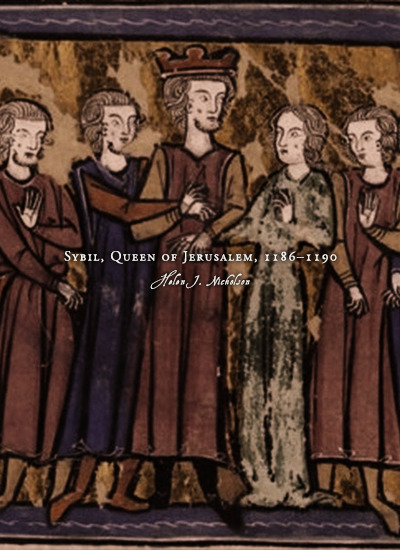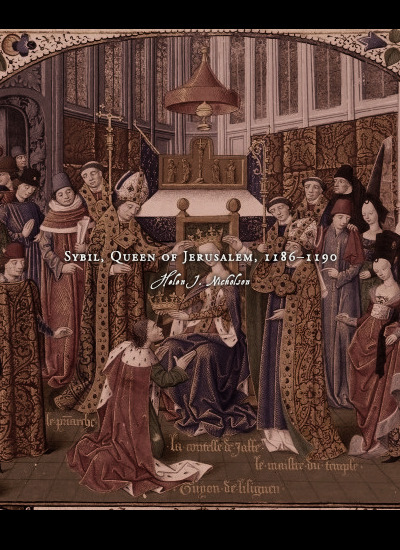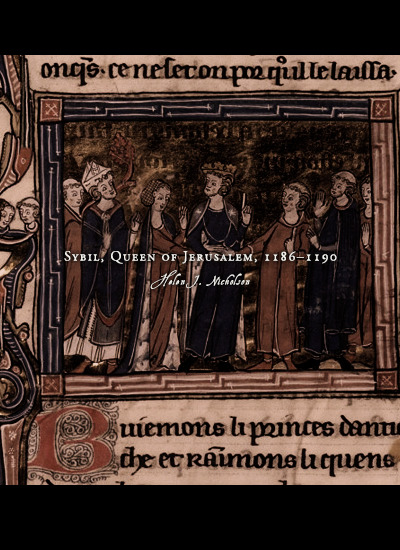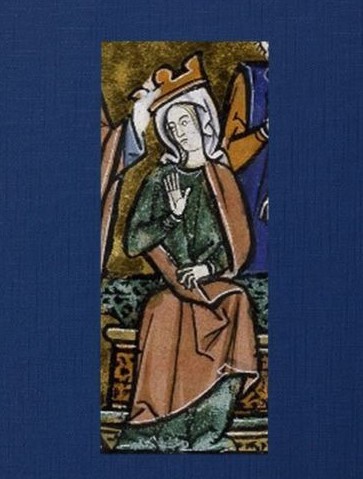#Saladin: The Conquerer of Jerusalem
Text





SALADIN: THE CONQUEROR OF JERUSALEM
Episode 1
#Kudüs Fatihi Selahaddin Eyyubi#Saladin: The Conquerer of Jerusalem#perioddramaedit#onlyperioddramas#turkish dizis#turkish drama#Uğur Güneş#Dilin Doger#gifs#ours#by hayf
115 notes
·
View notes
Text






SALADIN: THE CONQUEROR OF JERUSALEM
Episode 5
#Kudüs Fatihi Selahaddin Eyyubi#Saladin: The Conquerer of Jerusalem#turkish dizis#turkish drama#perioddramaedit#ceremonial#onlyperioddramas#gifhistorical#Uğur Güneş#Dilin Doger#selahaddin eyyubi#gifs#*
89 notes
·
View notes
Text
The Sultan, they said, was a good man. Soft, quickly moved to tears. Out of compassion, he bought the freedom of a Christian woman's stolen daughter. Even Walther von der Vogelweide, the minnesinger in distant Germany, praised the "mildness" of the powerful ruler in the Orient, whose name has a good reputation in the West: Saladin, a righteous man.
He was a man who always kept his word, even to his enemies.
He let his subjects drag him to court, because God's laws applied equally to everyone. Also for him, the ruler who managed to do what no one had ever managed before: to unite the Islamic world of the Middle East after centuries of discord and to wrest Jerusalem, the holy city of the Muslims, from the Christians in 1187.
His name translates as "righteousness of faith", and Saladin is indeed a devout Muslim. Nevertheless, after his conquest of the Holy Land, he allowed the Christians and Jews there to continue praying to their God. This is another reason why, more than half a millennium later, Western Enlightenment thinkers would make him the epitome of the tolerant ruler.
But this al-Malik an-Nasir Salah ad-Din Abu'l-Muzaffer Yusuf ibn Ayyub ibn Shadi, known as Saladin for short, also had other sides.
He could be treacherous, vile and mean. He did not shy away from murder. Nevertheless, this man fascinated his contemporaries. He became one of the most revered rulers of the Islamic world and the most important opponent of the Crusaders.
Saladin was born in 1138 in Tikrit (in present-day Iraq), the son of a Kurdish officer. During his political career, Saladin was the first to bring Egypt's army under his control.
Saladin, a Sunni, now founds two universities where theology is taught according to Sunni theology - a signal that he is on the side of the population. He also abolished a number of taxes that contradicted the Koran and the teachings of the Prophet.
Saladin's subsequent conquests shock the Christian world. By 1174, his power extended from North Africa to the southern tip of the Arabian Peninsula. In 1186, he ruled from the Nile to the Tigris.
At the height of his power, the Sultan even dreamed of taking the Holy War to Europe, conquering Rome - and putting the Pope in chains.
The Crusaders conquered Jerusalem in 1099 and held it until Saladin besieged it in 1187 and handed it over to the Ayyubid dynasty, a Muslim sultanate that ruled the Middle East at the beginning of the 12th century.
Saladin wanted to recapture the city, which had previously been ruled by Muslims.
For Muslims, Jerusalem is a place where important events in the life of Jesus and other important personalities took place. It is also the place where the Prophet Mohammed ascended to heaven according to the traditional interpretation of the Koran and other texts.
In Sunni Islam, Jerusalem is the third holiest city after Mecca and Medina. Muslims believe that Muhammad was brought to Jerusalem during his night journey (Isra and Mi'raj).
The name Jesus is mentioned twenty-five times in the Holy Qur'an, often in the form 'Isa ibn Maryam, which means "Jesus, son of Mary". In the Quran, he is given the unique title "Messiah" (al-masih in Arabic), which means "anointed one". He is considered one of many prophets from the lineage of the Prophet Ibrahim, or Abraham (peace be upon him). Many Muslim traditions regard it as an ideal example of spirituality. Unlike Christians, who generally believe in a triune God, Muslims believe that Jesus was a great prophet who was to lead mankind on the straight path of monotheism and obedience to God (Allah).
When Jerusalem also fell, two kings and an emperor set off for the Holy Land with their armies from 1189 onwards. One of the monarchs is King Richard I of England. Even before the armed pilgrimage, he had already earned himself an honourable name: "Lionheart."
Saladin lies in wait for the Christians in the forests of Arsuf near the Mediterranean coast. But King Richard of England had anticipated the attack; on 7 September 1191, his troops won a clear victory. Nevertheless, the Muslim army is still strong enough to block the road to Jerusalem.
Saladin's reconquest of Jerusalem in 1187 prompted Pope Gregory VIII to organize the Third Crusade. From 1189 to 1192, Saladin lost Acre and Jaffa and was defeated in the field at Arsūf. The Crusaders retreated to Europe without seizing Jerusalem, but Saladin's military reputation had been damaged. He died in 1193.
#learn about history#studyblr#religion#religious studies#crusaders#history#oriental#history of crusade#Saladin#king baldwin iv#kingdom of heaven#history of Jerusalem#Islam#christianity#history of Religion#teaching#books#booklr
55 notes
·
View notes
Text






Favorite History Books || Sybil, Queen of Jerusalem, 1186–1190 by Helen J. Nicholson ★★★★☆
As a child, Sybil’s future prospects appeared excellent: as the eldest child of King Amaury of Jerusalem and as a member of the dynasty that claimed descent from Godfrey de Bouillon and the other heroes of the First Crusade, we might expect that she would have been an attractive marriage prospect. Yet European noblemen did not queue up to seek her hand. One reason for this might have been that commanding the defence of the kingdom of Jerusalem in the face of aggressive Muslim expansionism was a daunting prospect for any warrior, no matter how ambitious. Moreover, as her brother Baldwin’s illness became generally known in Europe, Sybil’s potential husbands may have wondered whether she and her children would be similarly afflicted. In addition, as her brother Baldwin and his council made clear to Philip of Alsace in autumn 1177, outside aid was unwelcome in the kingdom except on the terms they dictated. Robert VI of Béthune, Philip of Alsace’s candidate for Sybil’s hand, might have made a more effective count of Jaffa and Ascalon, regent of the kingdom and king consort than Guy de Lusignan, but Baldwin – aged only sixteen at the time of Count Philip’s crusade – preferred to marry his sister to a man he knew.
If King Baldwin IV had supported his elder sister as the heir who – given that Baldwin V was very young and in uncertain health – would almost certainly inherit the kingdom, it might have been possible for Sybil to unite the nobles of the kingdom behind her as her brother had done. But his contradictory and changing policies left her rights of inheritance unclear and the nobles of the kingdom divided. He married her to one of his household knights, then attempted to divorce them; he appointed her husband as procurator, then shortly afterwards deposed him and appointed her son as his co- ruler, and then appointed another procurator, then finally appointed two regents, one to care for the young king Baldwin V and the other to govern. If he made further arrangements for the succession after Baldwin V they were unworkable. By marrying his younger half-sister to a leading noble of the kingdom but forcing the bridegroom to surrender his inherited estates in return, King Baldwin IV ensured that both his sisters and their husbands and supporters had grievances against him. While his measures reduced any threat that he would be overthrown during his lifetime, they boded badly for the kingdom after the death of his immediate heir.
Given the rivalries between the leading nobles of the kingdom and Saladin’s need to win a decisive victory over the Franks, no one could have prevented Saladin from taking Jerusalem and conquering most of Sybil’s kingdom; Sybil was doomed to failure as queen. Not only did she lose Jerusalem, but she also failed in the most fundamental function of a noblewoman: she failed to provide an heir for herself, as both her son Baldwin and her daughters died in childhood. On the other hand, in the face of disaster she did not abandon her kingdom and flee to Europe, nor did she retire to a religious house. Instead, she stayed in the crusader states and did all she could to oppose the invader. She tried to defend Ascalon, she remained in Jerusalem until it was surrendered to Saladin, she obtained her husband’s release from Saladin’s prison, and by accompanying him in the months that followed she gave him the authority to continue as king of Jerusalem. As husband of the eldest daughter of King Amaury of Jerusalem and as a crowned king, Guy had a stronger claim to royal authority than Conrad of Montferrat: crusaders from Europe rallied to him and the representatives of the Italian maritime cities supported him so that he could begin the fightback against Saladin which was continued by the Third Crusade and enabled the kingdom of Jerusalem to continue to exist until 1291. When Sybil died, Guy’s authority died with her; but she had ensured that her kingdom would not die, at least for another century.
#historyedit#litedit#sibylla of jerusalem#french history#medieval#asian history#european history#women's history#history#house of anjou#history books
49 notes
·
View notes
Text

My another KoH meme...
Saladin's plan:
1. "I conquer more and more areas to get them to my empire!"
2. "I invade Jerusalem with a lot of my millitary!"
3. (not in his plan) "I get my ass kicked by a leper brat with much smaller and weaker army..."
#my meme#my memes#meme#saladin#sultan saladin#baldwin iv#leper king#kingdom of heaven 2005#koh#koh memes#funny#śmieszne#gru meme
19 notes
·
View notes
Text

THE HOUSE OF MOURNING - the darkly gothic Book 5 of my critically acclaimed WATCHERS OF OUTREMER series, a historical fantasy set in the medieval crusader states - is released!!! Here are some nice things @rosamundhodge said about the book when she was beta reading it earlier this year. Get it today, anywhere ebooks are sold!
-
From the demon-infested shadows of an enchanted house, a sorcerer plots the downfall of the crusader kingdom…and his greatest act of vengeance.
Jerusalem, 1186: They call her the White Watcher, the warrior saint guarding the beleaguered kingdom of Jerusalem with her invincible lance. But Marta Bessarion doubts she’s anything special – and all signs warn of a coming disaster.
Now allied with the demon Lilith, the cunning and ruthless Countess Sibylla is poised to seize the throne. In Damascus, Saladin has sworn to conquer the crusader kingdom. And at his side, the sorcerer Khalil plans to take his revenge on the Bessarion family once and for all.
War promises Marta a long-awaited chance to confront Khalil, but in order to defeat him, she must first uncover his darkest secrets…and venture to the heart of his power.
Some battles can’t be won, even with a magic lance.
Sometimes it takes the weak things of the world to put the mighty to shame.
Darkly gothic and steeped in magic, this is the pivotal fifth instalment of the critically acclaimed Watchers of Outremer historical fantasy series! Order today and follow Marta Bessarion through the enchanted doorways of The House of Mourning…
#the house of mourning#watchers of outremer#marta bessarion#suzannah rowntree#historical fiction#medieval history
6 notes
·
View notes
Text

Melisende, Queen of Jerusalem, 1131-53.
The eldest daughter of the Frankish King Baldwin II of Jerusalem and his Armenian wife Queen Morphia, Melisende held real power in Jerusalem in the the 12th century alongside three men: her father, her husband Fulk and her son Baldwin III. Sometimes she held power against them, coming into political conflict later with both her husband and her son.*
The Franks had arrived in the Holy Land at the behest of Pope Urban II, who in 1095 had inspired a huge military campaign, now known as the First Crusade, with a speech at the Council of Clermont in France. The campaign was essentially aimed at recapturing Jerusalem from Islamic rule. The current rulers were the Fatimids, who claimed descent from Fatimah, the daughter of the prophet Muhammad, but the city had been in Muslim hands since the Siege of Jerusalem in 637.
According to Simon Simon Sebag Montefiore, Jerusalem flourished under Queen Melisende, “a remarkable woman who deserves to be better known.” She embellished the city landscape, creating much of what we see today: the founding of a grand abbey in Bethany, the classic Crusader church of St. Anne’s and the markets which still remain, and together with her son she rebuilt and reconsecrated the Church of the Holy Sepulchre.
Melisende died through ill-health in 1161, and Baldwin died two years later, rumoured to have been poisoned by his own doctor. He was succeeded by Melisende’s second son Almaric I and his bloodline. However, in 1187 the Holy Warrior, Saladin, conquered the city and along with his generals, apparently ensured that the stones of the city were scrubbed with vast quantities of rosewater to cleanse it from the pollution of the Christian infidels. This period saw the eviction of thousands of Christians from Jerusalem, prompting the Third Crusade in 1189.
Notes and quotes:
Simon Sebag Montefiore ‘Jerusalem: The Making of A Holy City’, episode 2.
2 notes
·
View notes
Text
A great warrior
By Anwar Syed
Salahuddin, known to Christendom as the great and chivalrous Saladin, was born to an influential Kurdish family in northern Iraq in 1138. His father, Najmuddin Ayyub, was governor of Baalbek at the time, and his uncle, Asaduddin Shirkoh, served as a general in the Syrian army. Salahuddin was still a child when his father sent him to Damascus, where he read theology, and learned the arts of warfare. He gained military experience under his uncle’s command in campaigns against the “Frankish” (European crusaders’) ruling houses in several towns in Syria and Palestine.
He rose to eminence during Shirkoh’s campaigns to Egypt that Nuruddin, the sultan of Damascus, had commissioned. These campaigns were intended to thwart the designs of the covetous Frankish king of Jerusalem upon that land. Strangely enough, as Shirkoh’s forces approached Cairo on January 2, 1169, the Frankish army, which had been besieging the city, retreated. Sixteen days later, Salahuddin ambushed and killed the chief Fatimid vizier, Shawar, whereupon Shirkoh entered the city and assumed the office of vizier. He died unexpectedly two months later (March 23, 1169), and Salahuddin at the age of 30 succeeded him as the vizier and virtual ruler of Egypt. Officially, however, he ruled as an agent of Sultan Nuruddin, who in turn professed allegiance to the Abbasid caliph in Baghdad.
Nuruddin wanted Salahuddin to terminate the Shia Fatimid caliphate in Egypt forthwith. Knowing that the young caliph (Al Adid) was not only powerless but terminally ill, he withheld action until the latter’s death on September 12, 1171. He then instructed the imams to bless the Abbasid caliph, instead of the Fatimid, in their Friday sermons. The Fatimid caliphate thus came to an end without bloodshed.
Even though his relationship with Nuruddin had become tense as a result of his “insubordination” in the matter of the Fatimid caliphate, Salahuddin did not proclaim himself the sultan of Egypt until after Nuruddin’s death on March 25, 1174. Nor, until then, did he move out of Egypt to subdue smaller Muslim principalities. He went some distance in the Maghreb (along the North African coast), and to the east to conquer Yemen.
Nuruddin’s heir, Ismail al-Malik, in Damascus was a mere boy controlled by a bunch of eunuchs in the palace. Salahuddin was well received when he entered the city and became the sultan of Damascus. Popular approval might have been taken as sufficient evidence of his legitimacy, but he chose to firm it up further by marrying Nuruddin’s widow. Within a few years he brought nearly all of Syria and parts of northern Iraq under his dominion, partly by skillful diplomacy and, when necessary, by swift and resolute use of force.
Salahuddin engaged the crusader in numerous battles most of which he won. He lost the Battle of Montgisard (November 25, 1177) in which he had to face the combined forces of Baldwin IV of Jerusalem, Raynald of Chattilon, and the Knights Templars. Two years later he attacked the crusaders again and defeated them at Jacob’s Ford. But they continued to provoke him.
Raynald harassed Muslim trading caravans and pilgrims. Worse still, he threatened to invade Makkah and Madina. He looted a caravan of Muslim pilgrims in 1184. On July 4, 1187, Salahuddin met and annihilated the forces of Guy of Lusignan, king-consort of Jerusalem, Raymond III of Tripoli, and Raynald in the Battle of Hattin (near Tiberias in northern Palestine). Raynald was captured and executed; Guy, too, was taken, but his life was spared. This was a terrible defeat from which the crusaders never recovered. Most of the towns under their rule (Acre, Toron, Beruit, Sidon, Nazareth, Nabulus, Caesaria, Jaffa, and Ascalon) fell to Saladin within the next three months.
When the crusaders first conquered Jerusalem in 1099, they slaughtered every Muslim and Jewish man, woman, and child in sight. By contrast Salauddin, upon taking the city on October 2, 1187, announced a general amnesty, ordered his soldiers not to hurt or harass any resident, assured those who wanted to leave safe passage and time to pack their belongings and take along with them all that they or their mules could carry.
The fall of Jerusalem to Salahuddin, and the crusaders’ successive defeats, shocked religious and political circles in Europe and prompted a third crusade in 1190 under the joint leadership of Richard I (the “Lionheart”), of England, and the kings of France and Austria. The Austrian king died on the way, and the French king went back home after a short stay in Palestine, leaving it to Richard to deal with Salahuddin. They met at the battle of Arsuf (September 17, 1191), which Richard won but not decisively. On his way to Jerusalem in June 1192, he became too sick and tired to continue, and made peace with Salahuddin (Treaty of Ramla), providing that Jerusalem would remain under Muslim control, but that it would be open to Christian pilgrims to visit freely. Soon thereafter, Richard left Palestine.
It is said that Richard was greatly impressed by Salahuddin’s generosity of spirit. Once when he was sick with fever, Salahuddin offered to send his personal physician to examine and treat him. On another occasion, Richard lost his horse, and Salahuddin sent him two of his own. When, on his way to Jerusalem, his men were without fresh water and extremely thirsty, Richard appealed to Salahuddin for supplies of fruit and water, which the latter sent.
Sir Walter Scott’s work, “Talisman,” depicts Salahuddin in Richard’s tent in the garb of a physician. So do legend and fable. Actually the two men had never met. Richard wanted a “summit” meeting, and sent a delegation of his knights to propose one, but Salahuddin declined. He asked the knights to tell Richard that they would meet only if and when one of them appeared before the other as a captive.
In terms of personal qualifications, Salahuddin is said to have been rather short, light brown of skin, slight of build, slim and frail, with piercing brown eyes and a pointed black beard. Beyond physical appearance, he was gentle, kind, merciful, and generous; tolerant and forgiving, courteous but firm; hardheaded, prudent, patient and persevering; courageous and chivalrous; competent planner and strategist.
He was a keeper of his covenants, and straightforward in that he said what he meant and meant what he said. He was pious and, according in some vesions, he may have damaged his health by excessive fasting. He was strictly honest; huge amounts of public revenues remained at his disposal but he took none of them. He gave away to the poor and the needy much of any salary that he may have drawn. His family and friends found upon his death that his “treasury” (more like a small cash box) contained no more than one gold piece, which would not be enough to meet his funeral expenses.
It appears that he did not care much for hierarchical distinctions. His subjects were free to sue him. He would not tolerate cruelty on the part of his functionaries, and forbade beating of servants. He banned exclusive enclaves or mansions for the wealthy in Cairo. He made it a thriving city in which commerce and cultural freedom flourished. He tended to treat his subordinates with respect and as near equals.
It has been reported that his secretary was once riding alongside him, and as they came to a muddy patch, his mule splashed mud on Salahuddin’s garment. He pulled back to ride behind the Sultan to avoid his mule’s mud-slinging. The Sultan is said to have laughed and told his secretary to ride alongside, not behind, him, for a bit of mud would not hurt him any.
One afternoon Salahuddin was resting in the opening of his tent when a servant brought him a document to sign. He told the servant to bring it back later because he was extremely tired at that time. The servant said the matter would brook no delay, and that he must sign the paper right away. Salahuddin then pleaded that he did not have an inkwell on hand. The servant retorted that an inkwell sat on a table at the back of the tent, implying that not he but the sultan himself should get up and fetch it. Believe it or not, that is exactly what the sultan did, and the servant got away with behaviour that in most quarters would have been regarded as gross and intolerable impertinence.
Salahuddin was a friend to learning. He established six colleges (seminaries) that taught not only religion but also mathematics, physics, geodesy, medicine, and administration. He recruited professors and scholars from all over the Muslim world to teach at these institutions and to undertake scholarly writing. He built a spacious hospital in Cairo that provided clean beds, free food and medicines, and employed physicians, druggists, and other needed helpers. It maintained a separate ward for women. Next to this hospital he built a facility that cared for mentally disturbed persons, treated them in a humane fashion, and employed experts to discover what had driven the inmates to their respective states of mind.
Salahuddin was a devout Sunni Muslim, apparently of the Shafi’i persuasion. He hoped to diminish any lingering Shia influence in Egypt, left by the long Fatimid rule, not by coercing but by “re-educating” the people. To this end he brought in quite a number of appropriate preachers, and hoped to re-establish Egypt as a stronghold of Sunni Islam.
He was zealous but by no means a fanatic. In his struggle against the European invaders he had the support of eastern Christians — the Georgian orthodox and the Egyptian Copts, who preferred him to the pope in Rome.
On the negative side, it may be noted that he dismantled the elaborate bureaucracy the Fatimids had maintained, appointed fellow-Kurds to high offices, gave many of his officers control over large tracts of fertile land, and thus furthered, if not introduced, feudalism in Egypt.
He died in Damascus on March 4, 1193. He was buried in the grounds of the Umayyad mosque and his tomb remains one of the most frequently visited in the Muslim world.
The writer is professor emeritus of political science at the University of Massachusetts at Amherst, US.
Email: [email protected]
2 notes
·
View notes
Text
Pre-Law History (War on Terror, UMass-Amherst)
Scenario: The People's Crusade, a media stoked movement.
Response: We need these cows, the Arabs stole our meat.
The First Crusade, the sack of Armenia for holding Slavics as Russian Orthodoxy, Satanists outside the Gypsy gene.
Response: Satan, is a deliberate faith, to be reversed through athletics; not battle, the proper murder, outside of prison's threat of the cell as an athlete.
The Third Crusade, the betrayal of the Jordan River Valley tower, unpaid labor.
Response: Anything on a non-payer commune, is open to a snitch; you need to understand the face of a foe, not the truth. Truth, is outside of money. But money, rules the world, that's a teacher.
The Children's Crusade, the sales of children in the thousands to African slavery in exchange for marijuana seeds and samples, "Houses in Scotland".
Response: "Con Air"; each of you convicts, are a job, and you've been in prison, your entire life. Don't go in with the Africans, you've been raised "black", and they're far older at the game. The Oath of the Italian Mafia; find the Boss, the Don, the Chump. She isn't what she seems.
The Fifth Crusade, Pierre the Coward, the Red Badge of Courage, versus Saladin, the Witch Hunter, the arts war of al-Qaeda.
Response: Starscream, the Decepticons, the Catholics, versus Optimus Prime, the Autobots, the Arabs. This is a rare treat, if you can find Northrup Grumman; the Charleboises.
The Eighth Crusade, the death of the German King, due to heart attack from falling in the Rhine River, forced into place.
Response: Any leadership war, is nothing without the King; but why do you have to have the King, on the spot? He's sacrificed himself, by coming to your quarries. Let Christ be King; Jesus was a pedophile, he saw for himself the ruthlessness of his father. Loose Change.
The Twelfth Crusade, RIchard the Lion-Hearted, the gold trade, in Iranian souls, trapped via captive.
Response: An O'Neill classic, "The Merchant of Venice". The beginning of a brand. "Ave Satani", Tip O'Neill. Are you mine, rule of thumb?
The Thirteenth Crusade, the retaking of Jerusalem by Moslems, the homosexuals bred as soldiers.
Response: Gay Niggers From Outer Space. The illegal play; the Statue of Liberty; DC Comics, a "narcotics officer".
The Iranian resistance against Turks, the assassins, bred on marijuana prenatal exposure, and marijuana hashish oils, butter lipids.
Response: The Nietzschean Society, the King's Men, and EON Productions. The breaker of the rule, is the champion. Friedrich Nietzsche, Adolf Hitler, David Charlebois.
The Mongolian invasion, the conquest of Russia, Mesopotamia, and Vietnam, by Uighurs.
Response: Sell toys, collect children's literature, and protect your women. Three rules, together, a German, the modern anti-Semite.
The Reconquistda, the French Germans, conquering Spain, and allowing Uthman, to return to stature, as a Rabbinical Jude, a business owner and manager.
Response: The Synagogue, is a punishment, unless refused three times; then an Arab, the old Southern Larchy Tune. For the Goyim.
The mince meat pie, the bond between priests and imamis, the beginning of the university, Muslim Shaykhs, college professors, managed by Rabbinicals, salesman, through priests, the homeless managers of the common people into military and police arms.
Response: The whole thing has to be thrown out. Then, you win, because someone, needed your help. Law enforcement, is a tool of a university, and the arrest, is the highschool. Elementary school, picks cops, the track athlete; the shutdown of a banking corporate, because a child, wanted to run away.
The resurrection of Judaism, the victor of the military, as refusing products based on rationing, the bigot to be sided against in war.
Response: The Grand Ol' Party, The United Kingdom, the Nation-State of Israel, the Federal Republic of Russia, and the Assembly of France. The last, John Wick, is post-humous. Is France, ethnic? Or just Jews?
0 notes
Link
0 notes
Text
0 notes
Text


Dilin Döğer as Süreyya
SALADIN: THE CONQUEROR OF JERUSALEM
#Kudüs Fatihi Selahaddin Eyyubi#Saladin: The Conquerer of Jerusalem#turkish series#turkish dizis#perioddramaedit#onlyperioddramas#turkish drama#dilin doger#selahaddin eyyubi#gifs#ours#by hayf
107 notes
·
View notes
Text





SALADIN: THE CONQUEROR OF JERUSALEM
Episode 6
#Kudüs Fatihi Selahaddin Eyyubi#Saladin: The Conquerer of Jerusalem#selahaddin eyyubi#dilin doger#uğur güneş#turkish series#turkish dizis#turkish drama#perioddramaedit#onlyperioddramas#gifs#*
64 notes
·
View notes
Text
Certainly, here is a detailed timeline of Jerusalem's history, covering significant events and periods from ancient times to the present day:
**Ancient History:**
- **c. 3000 BCE:** Jerusalem is established as a city in ancient times, predating recorded history.
- **1000 BCE:** King David establishes Jerusalem as the capital of the United Kingdom of Israel and Judah.
- **960 BCE:** King Solomon builds the First Temple in Jerusalem.
- **586 BCE:** The Babylonians, led by King Nebuchadnezzar II, destroy Solomon's Temple and exile the Jewish population.
- **538 BCE:** Persian King Cyrus the Great allows the Jews to return to Jerusalem and rebuild the Temple.
**Hellenistic and Roman Period:**
- **332 BCE:** Alexander the Great conquers Jerusalem, bringing Hellenistic influence.
- **167 BCE:** The Maccabean Revolt against the Seleucid Empire leads to Jewish independence.
- **63 BCE:** Roman General Pompey captures Jerusalem, bringing it under Roman control.
- **37 BCE:** King Herod the Great begins a massive reconstruction of the Second Temple, expanding and beautifying the city.
**Early Christian and Byzantine Period:**
- **6 CE:** Jerusalem becomes part of the Roman province of Judea.
- **30 CE:** Crucifixion of Jesus Christ in Jerusalem.
- **70 CE:** Romans destroy the Second Temple during the First Jewish-Roman War.
- **135 CE:** Bar Kokhba Revolt against Roman rule results in further Jewish diaspora.
- **4th century:** Emperor Constantine I converts to Christianity, leading to the construction of Christian sites in Jerusalem.
**Islamic Period:**
- **638 CE:** Muslim Caliph Umar ibn al-Khattab conquers Jerusalem, establishing Muslim rule.
- **691 CE:** Dome of the Rock, an Islamic shrine, is built on the Temple Mount.
- **11th century:** Crusaders capture Jerusalem during the First Crusade, establishing the Kingdom of Jerusalem.
- **1187:** Saladin recaptures Jerusalem from the Crusaders.
**Ottoman Rule:**
- **1517:** Jerusalem falls under Ottoman Empire rule after the Battle of Hattin.
- **19th century:** European powers exert influence in Jerusalem, leading to increased tension among religious communities.
**British Mandate and Modern Period:**
- **1917:** British forces capture Jerusalem from the Ottoman Empire during World War I.
- **1947:** United Nations proposes the partition of Palestine, leading to increased tensions between Jewish and Arab communities.
- **1948:** State of Israel is established, leading to the Arab-Israeli War and the division of Jerusalem.
- **1967:** Six-Day War results in Israeli control over East Jerusalem, unifying the city under Israeli rule.
- **1980:** Israel declares Jerusalem its eternal and undivided capital, a move not recognized by most of the international community.
**Recent Developments:**
- Ongoing peace negotiations and conflicts continue to shape Jerusalem's political and social landscape, with various proposals for the city's status as a shared capital between Israel and a future Palestinian state.
Please note that this is a condensed overview, and Jerusalem's history is incredibly complex and multifaceted. For a more in-depth understanding, further research into specific periods and events is recommended.

0 notes
Text
Events 7.12 (before 1900)
70 – The armies of Titus attack the walls of Jerusalem after a six-month siege. Three days later they breach the walls, which enables the army to destroy the Second Temple.
927 – King Constantine II of Scotland, King Hywel Dda of Deheubarth, Ealdred of Bamburgh and King Owain of the Cumbrians accepted the overlordship of King Æthelstan of England, leading to seven years of peace in the north.
1191 – Third Crusade: Saladin's garrison surrenders to Philip Augustus, ending the two-year siege of Acre.
1470 – The Ottomans capture Euboea.
1488 – Joseon Dynasty official Choe Bu returned to Korea after months of shipwrecked travel in China.
1493 – Hartmann Schedel's Nuremberg Chronicle, one of the best-documented early printed books, is published.
1527 – Lê Cung Hoàng ceded the throne to Mạc Đăng Dung, ending the Lê dynasty and starting the Mạc dynasty.
1543 – King Henry VIII of England marries his sixth and last wife, Catherine Parr, at Hampton Court Palace.
1562 – Fray Diego de Landa, acting Bishop of Yucatán, burns the sacred idols and books of the Maya.
1576 – Mughal Empire annexes Bengal after defeating the Bengal Sultanate at the Battle of Rajmahal.
1580 – The Ostrog Bible, one of the early printed Bibles in a Slavic language, is published.
1691 – Battle of Aughrim (Julian calendar): The decisive victory of William III of England's forces in Ireland.
1776 – Captain James Cook begins his third voyage.
1789 – In response to the dismissal of the French finance minister Jacques Necker, the radical journalist Camille Desmoulins gives a speech which results in the storming of the Bastille two days later.
1790 – The Civil Constitution of the Clergy is passed in France by the National Constituent Assembly.
1799 – Ranjit Singh conquers Lahore and becomes Maharaja of the Punjab (Sikh Empire).
1801 – British ships inflict heavy damage on Spanish and French ships in the Second Battle of Algeciras.
1806 – At the insistence of Napoleon, Bavaria, Baden, Württemberg and thirteen minor principalities leave the Holy Roman Empire and form the Confederation of the Rhine.
1812 – The American Army of the Northwest briefly occupies the Upper Canadian settlement at what is now at Windsor, Ontario.
1862 – The Medal of Honor is authorized by the United States Congress.
0 notes
Text
판도라 조작된 낙원 11회 다시 보기 11화 E11 tvN
판도라 조작된 낙원 11회 다시 보기 11화 E11 tvN 링크<<

판도라 조작된 낙원 11회 다시 보기 11화 E11 tvN
판도라 조작된 낙원 11회 다시 보기 11화 E11 tvN
판도라 조작된 낙원 11회 다시 보기 11화 E11 tvN
판도라 조작된 낙원 11회 다시 보기 11화 E11 tvN
판도라 조작된 낙원 11회 다시 보기 11화 E11 tvN
Barisan, the first head of Ibelin, married Helvis, the heiress of Ramla, obtained Ramla by wedlock, Hugues, Baudouin, Balian, and Ermangar. Stéphanie from Ermengarde has 판도라 조작된 낙원 11회 다시 보기 11화 E11 tvNthree sons and two daughters. As time passes, the eldest son inherits Ibelin and the second son inherits Ramla, but the eldest son, Wig, becomes a soldier on the pilgrimage to Santiago. His second son, Baudouin, inherits Ibelin, but gives Ibelin to his youngest son, Balian, who has no estates with Ramla, which he rules. The third son, B판도라 조작된 낙원 11회 다시 보기 11화 E11 tvNalian, later married Maria Komnini, a princess of the Byzantine Empire and the widow of Amory I, and obtained Nablus, which had been under the direct control of the queen since Melisande. Moving on to the island of Cyprus, he ceded Ramla to get Ibelin, Ramla, Nablus, and Beersheba.
Balian's descendants were the most influential nobles in the kingdoms of Jerusalem and Cyprus. Balian's eldest son, John, ruled the county of Beirut in the kingdom of Jerusalem and was in the position of regent in the kingdom of Cyprus판도라 조작된 낙원 11회 다시 보기 11화 E11 tvN at the same time. When he tried to put Cyprus under him, he rebelled against the emperor's authority as an opposition leader. In 1241, the Ibelin family regained Jerusalem according to the emperor's end-of-war treaty, and in the aftermath, they returned the Ibelin territories that had been occupied by Saladin.
Together with Melisande of Arsuf, Balian III, ruler of Beirut, Baldwin, archdeacon of the kingdom of Cyprus, John, lord of Arsuf and consul of the kingdom of Jerusalem, and Guy, consul of Cyprus had many children, such as
Balian III married Eschiva of Montbéliard and gave birth to John II of Beirut, who married the daughter of Guy I de la Roche, Duke of Athens.
John of Arsuf was the father of Balian of Arsuf, who married Plaisance of Antioch.판도라 조작된 낙원 11회 다시 보기 11화 E11 tvN
Guy was the father of Isabella, King Hugh I of the Kingdom of Jerusalem and wife of Hugh III of the Kingdom of Cyprus.
In this way, the Ibelin family came into contact with almost all crusader countries, including the satellite countries of the Latin Empire, and in particular, the Kingdom o판도라 조작된 낙원 11회 다시 보기 11화 E11 tvNf Cyprus was a queen family for generations. The Toulouse family is the family of Raymond, one of the main leaders of the 1st Crusade. Raymond was the younger brother of Guillaume IV, Count of Toulouse, but when Guillaume IV designated his daughter Philippa as his successor and died, he immediately usurped and became Count of Toulouse. For this reason, Guillaume IX, Duke of Aquitaine, married to Philippa, 판도라 조작된 낙원 11회 다시 보기 11화 E11 tvNattacked Toulouse several times claiming the title of count, but defended it well.
He was a devout Catholic and wanted to die in the Holy Land, so he was doing the Reconquista movement when he was invited to participate in the First Crusade by the papa판도라 조작된 낙원 11회 다시 보기 11화 E11 tvNl envoy, and he was the first of the princes to pledge to participate. As he was the oldest in age, he became the leader of the princes of southern France. In Constantinople, he made a new oath to the Eastern Roman Emperor Alexius I. After conquering Antioch, he had soldiers stationed in the city, but since he was driven out by Bohemond I, he declared that he wanted possession of Tripoli, south of Antioch, as his territory to hinder Bohemond's territorial expansion, but before o판도라 조작된 낙원 11회 다시 보기 11화 E11 tvNccupation. did However, as his soldiers hoped to advance on Jerusalem, they stopped once and attacked Jerusalem together with Godefroy of Bouillon.
At first he was made king of Jerusalem, but he refused because he did not want to be called king in the land where Christ died. Because of this, Godfrey was elected kin판도라 조작된 낙원 11회 다시 보기 11화 E11 tvNg, but Godfrey also did not want to be called king, so he used the title of guardian of the holy tomb. After that, he participated in the battle of Ascalon, but he could not capture this place because he had a quarrel with Godefrua over the occupation of Ascalon. Because of this, he broke with the Crusades and stayed in Constantinople. Here he joined the Crusaders in 1101, but was defeated in Anatolia. He returned to C판도라 조작된 낙원 11회 다시 보기 11화 E11 tvNonstantinople and set the goal of conquering Tripoli with the aid of Emperor Alexius Comnenus, but was killed during the expedition.
His nephew Guillaume Jourdain continued the siege, but Bertrand then replaced him and captured Tripoli in 1109, establishing the county of Tripoli. His subordinate, Raymondus de Aguilers, wrote the account of the First Crusade from Raymon판도라 조작된 낙원 11회 다시 보기 11화 E11 tvNd's point of view. Although he never saw the establishment of the county of Tripoli, he was recognized as the 1st Count of Tripoli because he nominally declared Tripoli his domain. Since then, he is active in the front line defending the north of the Kingdom of Jerusalem.
1 note
·
View note